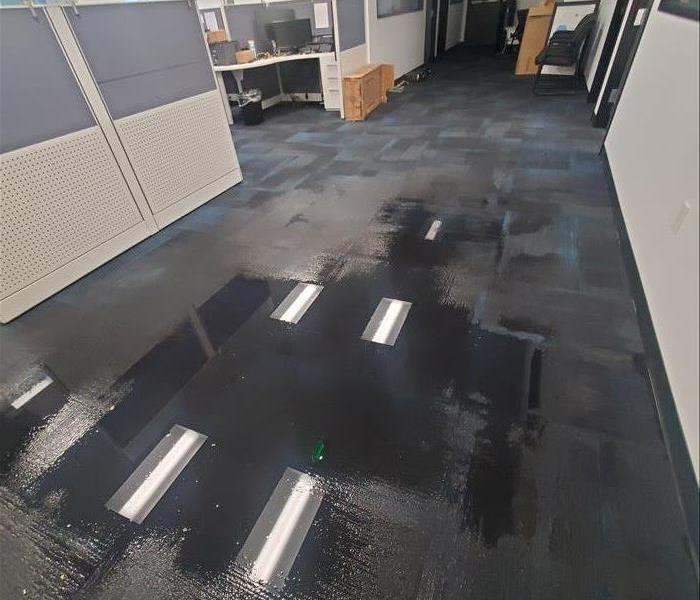Can Water Damage My Appliances? Understanding the Impact of Water Damage on Household Appliances
2/12/2024 (Permalink)
 Water damage poses a significant threat not only to the structure of your home but also to the functionality of household appliances.
Water damage poses a significant threat not only to the structure of your home but also to the functionality of household appliances.
Water damage poses a significant threat not only to the structure of your home but also to the functionality of household appliances. As experienced professionals in the restoration industry, we've witnessed firsthand the detrimental effects water damage can have on appliances. Let's delve into how water damage can affect your appliances and what steps you can take to mitigate potential issues.
1. Electrical Damage
When water infiltrates appliances, it can compromise their electrical components, leading to short circuits or malfunctions. Water and electricity are a hazardous combination, potentially causing irreversible damage to circuits, control panels, motors, and wiring within appliances.
2. Corrosion and Rust
Water exposure accelerates the corrosion process in metal components of appliances. Rust formation on internal parts can hinder the proper functioning of appliances, causing mechanical failures or breakdowns.
3. Circuit Board Damage
Modern appliances often contain complex electronic circuitry. Water infiltration can damage these sensitive circuit boards, disrupting their functionality and leading to appliance failure or erratic behavior.
4. Malfunctioning Controls and Displays
Water damage can impact control panels, knobs, and displays on appliances. Moisture seeping into these areas can cause malfunctioning controls or display glitches, rendering the appliance unusable or unreliable.
5. Motor and Mechanical Issues
Water damage can impair the motors and mechanical parts of appliances, affecting their performance and efficiency. Seized motors or compromised mechanical components may lead to appliance breakdowns or increased energy consumption.
6. Mold and Mildew Growth
Waterlogged appliances create a conducive environment for mold and mildew growth. The dark, damp spaces within appliances provide an ideal breeding ground for these harmful microorganisms, potentially compromising hygiene and other issues.
Mitigating Water Damage to Appliances
- In the event of water damage, immediately disconnect power to affected appliances to prevent electrical hazards.
- Thoroughly dry appliances before attempting to use them again. Allow ample ventilation to help remove moisture and prevent mold growth.
- Seek professional assistance to assess the extent of water damage to appliances. Avoid using appliances if they've been extensively water-damaged until they've been inspected and deemed safe for operation by a professional.
Understanding the potential risks of water damage to household appliances is crucial. Taking proactive measures and seeking professional help when needed can help minimize damage and ensure the safety and functionality of your appliances in the long run. Remember, when in doubt about the safety of an appliance after water damage, contacting our SERVPRO of Tarzana/Reseda is always the best course of action.






 24/7 Emergency Service
24/7 Emergency Service